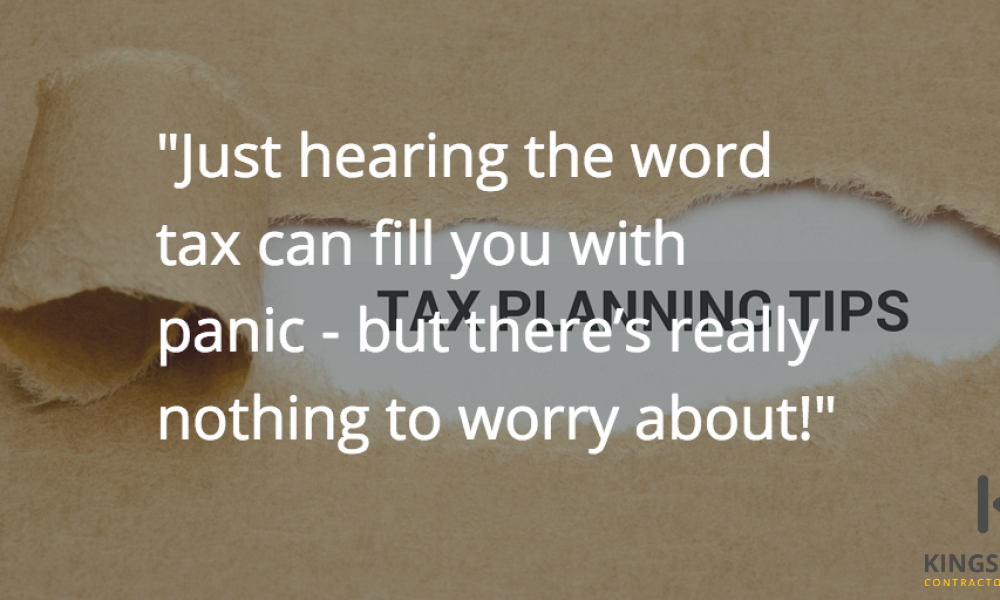As a contractor or freelancer, just hearing the word tax can fill you with panic – but there’s really nothing to worry about! We’ve outlined some basic tips for new contractors and freelancers below. They should help you prepare and manage your taxes easily and efficiently.
1. Set up a business bank account
Having a separate business bank account may seem like something that doesn’t really apply to you as a contractor or freelancer – why can’t you just use your current account? Having a business bank account means you can work out what money is coming in for your business and what money you’re spending.
Who has time to trawl through their personal bank account sifting through your supermarket purchases to try and find all business-related transactions? It makes working out your income and expenditure sheets so much easier.
2. Record as you go
Recording what money has come in and what you’ve paid out can be tricky if you let a few weeks slide. Set time aside each week to add in your invoices: Which have been paid? Which are outstanding? Don’t forget to take note of how many meetings you attended and how much mileage you’ve clocked up.
Keeping on top of all these records means it becomes a lot less stressful when you submit your self-assessment.
3. Don’t rely on traditional processes
You should aim to record all your expenses and income on your computer. Making notes on paper is all well and good, but once you misplace or lose the notes, you’re left high and dry. Make a habit of typing up all income and expenditure notes as soon as possible. This way, there’s less chance of you losing important information.
4. Stay organised
File your tax return with plenty of time to spare and avoid a £100 fine. Registering and awaiting your Unique Taxpayer Reference and your Government Gateway login can take up to 28 days. Staying organised and on top of everything tax-related is a must. It’ll save you time, money and stress in the end.
5. Budget for your tax
Now that you’re self-employed, your taxes don’t get deducted automatically like they did when you were permanently employed by another company. You need to work out your own tax contributions so that when it does come to paying what you owe, you can simply access the funds easily.
After you’ve calculated a tax estimation, try and over-save for your tax contributions. This will ensure you have more than enough when it comes to handing the money over. It also means you’ll have a little extra to treat yourself with once the money has been paid!
At Kingsbridge, we’re all about saving you time and worry when it comes to your business. That’s why we’ve ensured our five-product contractor and freelance insurance package can cover you for all eventualities. Read more about our straightforward insurance package here.
